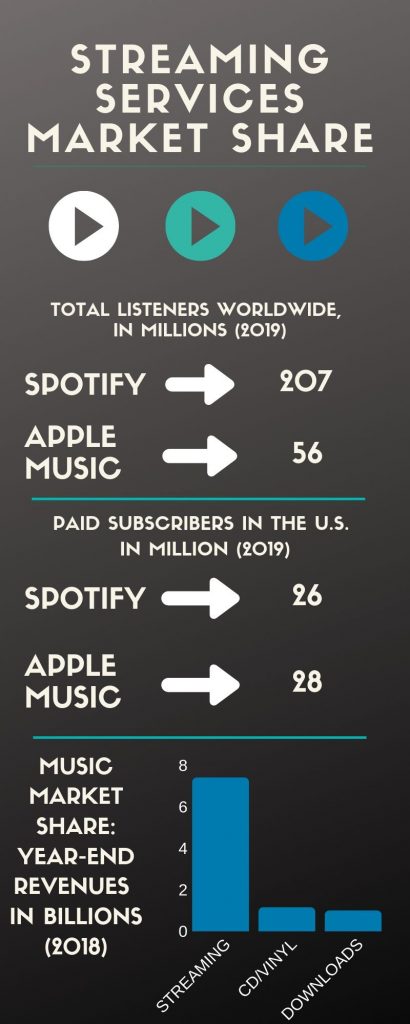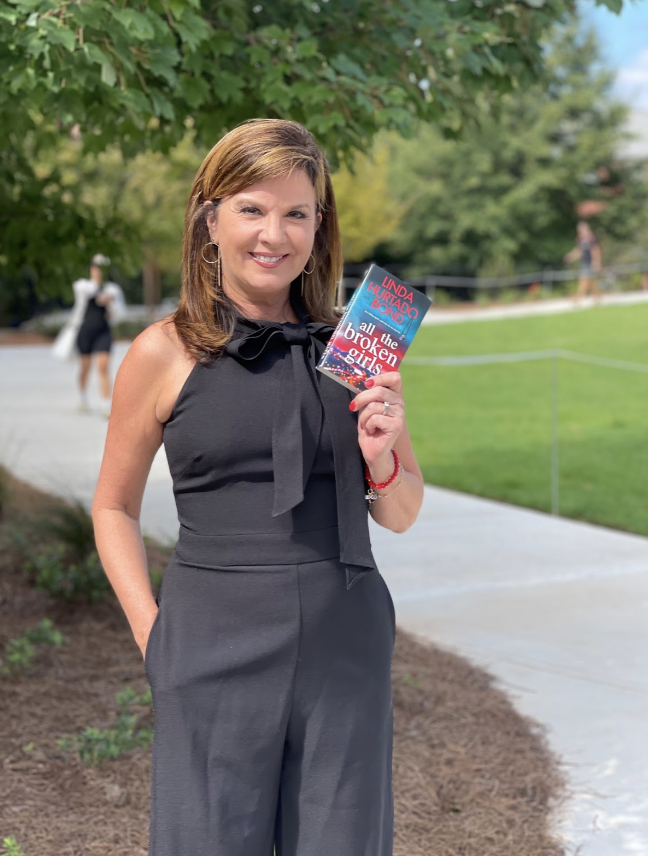Since the introduction of the internet, the music industry has shifted exponentially, completely revolutionizing the way the world consumes music. As music becomes ever more convenient and accessible for the public, artists are forced to adapt to the changing market or risk extinction.
Artists and record labels who once relied on the sale of CD’s and LP’s have a choice to make—either change their methods or accept a lower pay. In a report by Forbes, CD sales in the USA have fallen from 450 million units a year to 89 million units in the last 10 years. That’s an 80 percent decrease in one decade alone.
Why It’s Newsworthy: As the global music community shifts toward streaming and online music platforms, artists struggle to make a profit. The Athens music community has taken it upon itself to make sure those who want to play music can afford to do so.Technical Difficulties: Spotify’s Disruption in Artists’ Pay

From its beginning in 2007, Spotify grew from 1 million subscribers worldwide in 2009 to 96 million today, with Apple Music following behind with 56 million subscribers. This contrasts with listeners in the U.S., where Apple Music has more—Spotify has 26 million paid subscribers compared to Apple Music’s 28 million, as of February 2019. Spotify also offers a free version of its streaming service, and when those users are considered, Spotify pulls ahead of Apple Music with 207 million users worldwide.
To simplify those statistics, the takeaway is this: with the boom in popularity of streaming services, millions of artists have chosen to make their music available digitally and accept their pay from the streaming service itself.
But if artists no longer make money off of physical album sales, how do they make a profit?
Instead of each track or album being bought individually at a record store or on Itunes, artists are paid for the number of streams their music accumulates. For each stream, the artist makes about $0.0006 to $0.0084, with 1 million streams adding up to about $7,000.
While this figure may seem large, most artists on these streaming platforms will never make it to 1 million streams, meaning they make very little from putting their music on these platforms. In fact, some artists may never receive a majority of their profits at all.
If an artist is signed to a record label, the label can take up to 70 percent of those royalties, depending on the contract between the artist and the label. To put this figure into perspective, the artist could take home only $2,100 for 1 million streams. Shortly after its founding in 2006, Spotify made licensing agreements with major record labels such as Universal Music Group, Sony, Warner Music Group and more. This means that almost every popular artist on Spotify is giving a portion of the royalties they earn to their record labels.
The bulk of most artists’ profit comes from live shows, touring and merchandise sales. This has caused concert-goers to pay some of the highest ticket prices of all time, according to an article published by Rolling Stone in 2018.
While hiking ticket prices and selling more merchandise is doable for larger artists who pack arenas, local artists, such as those who make up the Athens music community, can struggle.
Making Green in the Local Scene
Though Athens is the birthplace of world-renowned bands like REM and the B-52s and historic venues like the Georgia Theatre and The 40 Watt Club, it has become increasingly difficult for bands here to turn a profit. Many have turned to advertising on social media, or hiring managers and publicists to do so for them.
Jessica Goodson is the assistant talent buyer and show coordinator at The Foundry, a local venue on the backside of downtown. She also manages four different bands—two in Atlanta and two in Athens. She said that while streaming does hurt her artists’ profit margins, she also appreciates the technological change, as it provides free advertising. Goodson posts daily for each band to advertise their upcoming shows and events, and has made a page for each group on Instagram and Facebook.
Goodson said it is much easier to book bands in Athens than Atlanta. She said this is partly because the music community here is smaller and more willing to help one another.
Athens is great because the music community is so closely knit together, and it’s easy to make connections,” Goodson said. “It’s a lot harder to book shows in Atlanta because it’s so big.”
As far as pay goes, Goodson said her bands make most of their profit from live shows, and more specifically, t-shirt sales. In order to make more sales, she has to post on each band’s social media three to four times a week to promote each show.
Still, Goodson’s bands make $100 for each member on a good night, and on a bad night, they could make as little as $5. It is because of this low profit margin that Goodson has to wear more than one hat to make sure her bands are successful.

Goodson will sometimes take a break before or after a concert to take photos of the band members. She took this portrait of Mitchell Powers of The Powers and posted it on the band’s Facebook and Instagram pages. (Photo Courtesy/Jessica Goodson)“I’m the booking agent and the manager and the publicist, all in one,” Goodson said. “And sometimes, the mom.”
Local publications such as Flagpole Magazine and The Red & Black Newspaper also help to promote local concerts, which benefits both the artist and the community. Along with previews and coverage of live music, Flagpole Magazine publishes a Live Music Calendar, which is a comprehensive list of every live show at every venue that week.
Gabe Vodicka, Flagpole Magazine’s managing editor, said that while the calendar is designed for the public, it is beneficial to artists as well.
“The calendar exists for your average person who wants to go see a show, and for your average musician who wants to network and make connections,” Vodicka said. “We try to bring attention to up-and-coming artists who might not get mentioned elsewhere.”
These connections can help an artist get booked at a different venue or potentially be an opener for a larger band that they have met. If the calendar didn’t exist, show patrons would have to look on each venue’s website to see if there was any live music available on any given night.
Through grassroots efforts of individuals such as Vodicka, Goodson, and thousands of others who make up the music community around the city, Athens has done what it can to lighten the financial burden that streaming and a lack of physical music sales has caused. In order for the music scene in Athens to continue to survive, venues, fans and artists alike have to make a concerted effort to support one another.
“My goal is to help my bands succeed as best they can,” Goodson said. “I feel a lot better about reaching that goal in a town like Athens.”
Rosemary Scott is a senior majoring in journalism in the Grady College of Journalism and Mass Communications at the University of Georgia.









Show Comments (0)